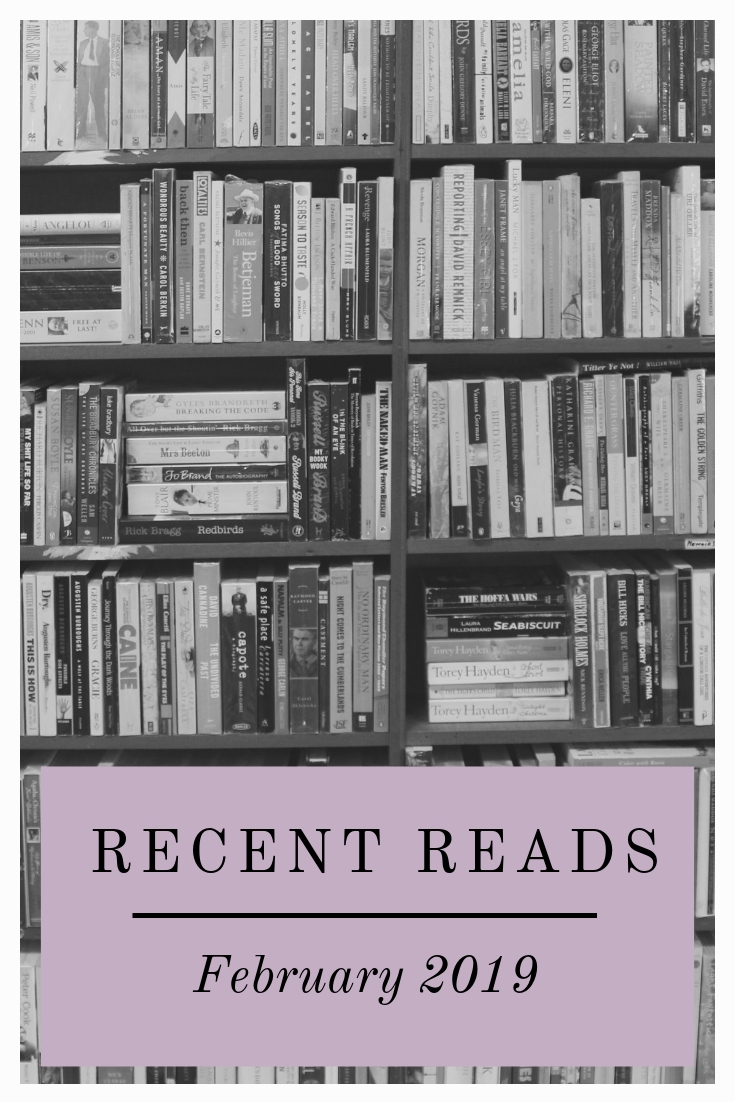
Recent Reads – February 2019
Happy February, friends! I didn’t read as much during January because I was making my way through a 600-page biography.

Princesses Behaving Badly: Real Stories from History Without the Happy Endings – Linda Rodriguez McRobbie
Princesses Behaving Badly looks at the lives of princesses who didn’t have a Disney happy ending. Some of the women are more well known, while some are a bit more obscure. If you like books about monarchy, you’ll probably like this one. I read it in a day or two because I found the stories really interesting.
The Romanov Sisters: The Lost Lives of the Daughters of Nicholas and Alexandra – Helen Rappaport
The Romanov Sisters charts the charmed lives of the doomed Olga, Tatiana, Maria, and Anastasia. While the book is about the sisters, you do get a good amount of information about Nicholas, Alexandra, and Alexei. It is very comprehensive and well-written. Overall, I enjoyed it, but I read it with that impending sense of doom knowing how their story ended in a basement in Ekaterinburg.
Mayflower: A Story of Courage, Community, and War – Nathaniel Philbrick
If you haven’t noticed by now, I really like Nathaniel Philbrick’s books. I’m fairly certain I read this one back when we lived in North Carolina, though I bought a copy and read it again {maybe}. It traces the settlement of Plymouth from the creation of the Pilgrims’ community to the Mayflower journey all the through King Philip’s War. If you want to read one book about the Pilgrims and the Mayflower, make it this one.
Elizabeth I – Anne Somerset
I started this book a few years ago and then managed to mislay it. So I decided to just start over. This may be the most complete and comprehensive biography I’ve read about Elizabeth I. I think that says something considering I have one shelf of books solely on Elizabeth. It is almost 600 pages, so that may seem daunting. But it is well-written and generally easy to read.
These Fiery Frenchified Dames: Women and Political Culture in Early Philadelphia – Susan Branson
This book examines the dynamics of women and their participation in the political culture of post-Revolution Philadelphia. Unless you’re a fan of political science or women’s history, you may find this book incredibly boring. I liked it, but I did want to warn people if you want to read it.
This post contains affiliate links. If you make a purchase through this link, Extra Black Olives will receive a small commission at no extra cost to you.
